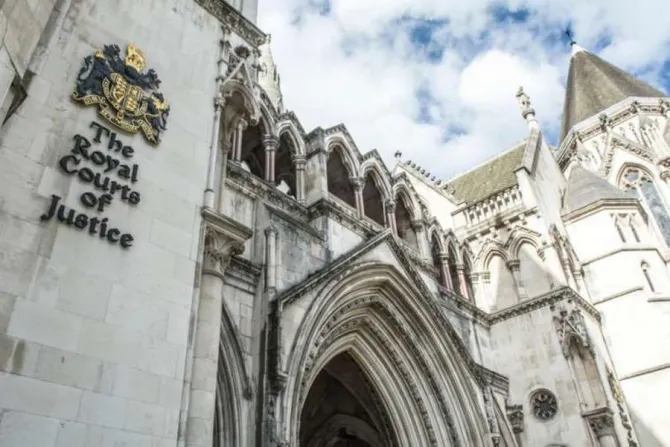The Court of Appeal is located at the Royal Courts of Justice in London, England. | Willy Barton/Shutterstock.
The Court of Appeal will hear a case challenging a UK. law that allows abortion up to birth for disability after the High Court rejected the case last year.
The High Court in London ruled in September 2021 that the law allowing abortion up to birth for disability was not discriminatory.
The challenge was brought by Heidi Crowter, a 26-year-old woman with Down syndrome, and Máire Lea-Wilson, a 33-year-old mother whose son has Down syndrome.
After last September’s verdict, Crowter and Lea-Wilson appealed the decision, and on March 8, the Court of Appeal announced that it would hear the challenge.
“I hope we win. People shouldn’t be treated differently because of their disabilities, it’s downright discrimination,” Crowter said.
Lea-Wilson said: “I am thrilled to hear that the case will be heard by the Court of Appeal, and I hope that this will be the time that we all stand up for equality.”
“I have two sons that I love and value equally, but the law does not value them equally. This is wrong and so we want to try and change that.”
Section 1(1)(d) of the U.K.’s Abortion Act 1967 permits abortion up to birth if “there is a substantial risk that if the child were born it would suffer from such physical or mental abnormalities as to be seriously handicapped.”
There were 3,083 abortions based on disability recorded in England and Wales in 2020, 693 of them following a prenatal diagnosis of Down syndrome — an increase from 656 in 2019.
Crowter, who is from Coventry, in central England, said: “The law says that babies shouldn’t be aborted up to birth, but if a baby is found to have Down’s syndrome, it can be aborted up until birth. This is the current law in the U.K. and I think it’s not fair.”
“The United Nations Committee on the Rights of Persons with Disabilities recently said that the United Kingdom should change its abortion law to make sure that people like me aren’t singled out because of our disabilities but the Government hasn’t changed the law,” she said.
“So last year, me and other members of the Down’s syndrome community set out to get rid of the clause in the law, and now our case will soon be heard in the Court of Appeal.”
Source: CNA

